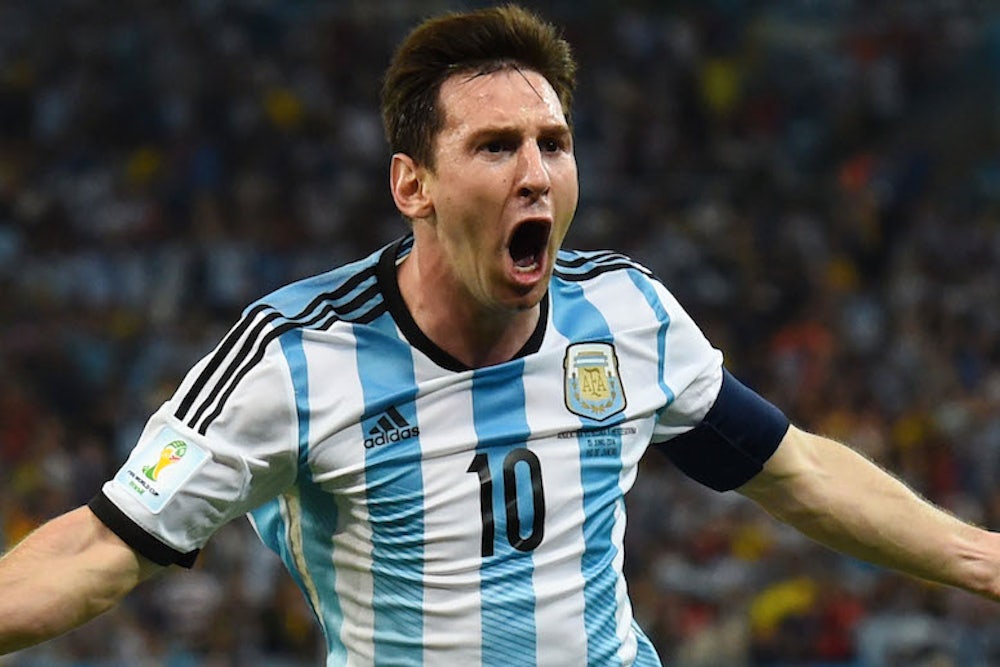Argentina is a country with a curious central paradox: it maintains a very strong and distinct national identity, yet it is a country that is deeply divided along ideological, political, and social lines. Argentine football is no different. But instead of Peronistas and Antiperonistas, you have Menottismo and Bilardismo.
The Godfather of Menottismo is Cesar Luis Menotti, the manager who led Argentina to victory in the 1978 World Cup. Broadly speaking, Menottismo is a footballing philosophy that believes in playing well—in that the best way to achieve success is to play attractive, possession-based soccer that allows attacking players to express themselves.
Conversely, in Bilardismo, anything must be done to win, with a premium put on defending your goal. Also, everything is valid in pursuit of victory, even if it means getting a little dirty. Carlos Bilardo, the original Bilardista, was a player on the infamous Estudiantes de la Plata teams in the 1960s, who won three Copa Libertadores in a row but were known as being incredibly nasty and violent. Bilardo then went on to coach Argentina to the 1986 World Cup title (where it should be pointed out, Maradona did whatever it took to beat England).
The debate between Menottistas and Bilardistas has been going on for decades and will probably never be settled properly.
Alejandro Sabella, the current Argentine manager, was groomed by Bilardo when he played for him in the early 1980s, and is seen as a sort of compromise between the two. While a Bilardista by training, he is not an ideologue.
On Sunday, however, facing the pressure of his World Cup debut, his Bilardismo overtook him. He surprised everyone by dropping striker Gonzalo Higuain (20 goals in 36 caps for his country) in favor of a center-back and played five at the back against a Bosnia-Herzegovina team that is better than people think, but not one that is packed with superstars.
I was at the Maracaná for this match, and despite Argentina’s fluky goal in the opening minutes, the plan was a complete failure. Sabella’s 5-3-2 formation forced Angel Di Maria, who has transformed into a total footballer this season, to play way farther back than he is used to in order to initiate Argentina’s play.
Worse, this left Leo Messi on an island to fend for himself against an organized Bosnian defense. Messi is superhuman and the best player I’ve ever seen, so it was strange to watch him so incapable of creating any sort of danger in the first half. Frustrated by Bosnia’s defensive midfielder Besic, Messi began dropping deeper and trying to jump-start his team’s nonexistent build-up play. It was a total disaster, and the Bosnians actually looked quite comfortable and seemed the likelier team to score.
Then Sabella did something you almost never see. He made two halftime substitutions despite having a 1-0 lead. He brought on Higuain for Campagnaro, which changed the team’s shape to the 4-3-3 which had worked so well for them in training, and more importantly he brought on Fernando Gago for Maxi Rodriguez in midfield. Now Gago isn’t exactly the world’s greatest player, but he’s the only player on Argentina’s squad who feels comfortable circulating the ball with purpose in midfield.
Essentially, Sabella took a page out of Menotti’s manual: you win when you play your players who best know how to play the ball effectively.
The effect on Argentina’s play was evident. Gago began combining with Messi, allowing him to go further up the pitch, which allowed him to spring Di Maria down the left and Higuain down the right. This began to force the Bosnian defenders to spread out more than they had in the first half, which gave Messi the space to do this. It was a vintage Messi goal. He’s scored that goal a hundred times for Barcelona.
After the game Sabella took responsibility for his team’s poor play: “It is true that we failed in parts, in part because of my own mistakes.” He went on to say, "They were two different halves."
Indeed they were. One was Bilardista and the other Menottista. If Argentina hope to win this World Cup, and they are my personal pick to win it all, Sabella will have to look at this match for the best path forward.
